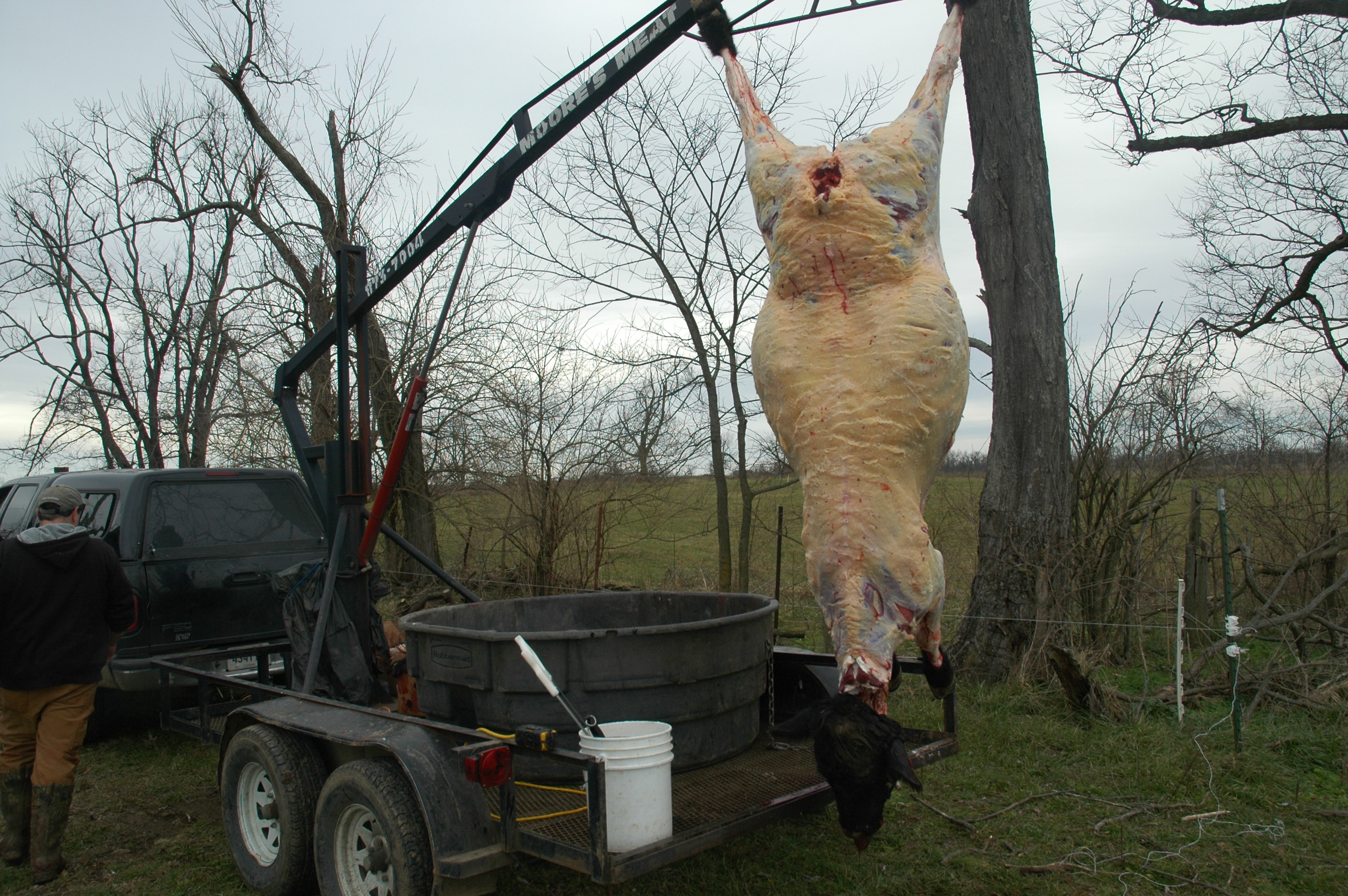Very proud of myself. This Thursday marked the culmination of a two-year dream to raise and process my own beef. Dicky, an affable, professional butcher from Moore’s Meats, made a house call to our farm, and killed, skinned and quartered a young steer, one of the fourteen thirteen cows in the herd I’ve been raising since last spring.
Naturally, for this city boy there was a degree of emotional discomfort to see a large, complex animal felled with a shot to the head, and transformed into meat before my eyes. We are not so sentimental that we name our cattle, but the steer in question, #18, had a personality. He was fearless and curious and docile, if that makes any sense.
But perhaps the best thing about the emotional aspect of this affair was that my stress level on the day was higher than the steer’s ever got. His heartbeat might have quickened a fraction when he smelled the strange man walking towards him, pointing a long stick … but that was it. #18 never had to experience the disorientation and panic of being loaded, transported, crowded and harassed in his last hours.
So that was a good thing. Also, the fact that he got to this nicely rotund body condition while eating an exclusive grass/hay diet. He wasn’t stuffed with grain, and never saw an antibiotic. He had nothing to do with the massive, and massively ugly, industrial cattle production system. Since he came to our farm at about three months of age, he never left it. He spent no time standing up to his ass in mud and shit in a feedlot. No trucks, no gasoline, no corn or beans or fertilizer or herbicide were involved in his raising (OK. Maybe minimal amounts of gasoline).
Yay, me.
I ain’t gonna lie. This wasn’t easy. There was a good deal of labor involved, nearly all of it supplied by yours truly. When the grass is growing, I moved my herd to a new paddock every day by moving electric wire with portable step-in posts. And when the grass is not growing, the procurement and placement of hay, combined with doing constant battle with Kentucky mud (mixed with cow piles), is an unrelenting (and pretty unpleasant) challenge. As is doing all of this without the purchase of tractors, trailers, handling equipment, ATVs and four-wheel-drive trucks. That’s the trade-off. More labor in exchange for keeping expenses, debt, and inputs to an absolute minimum.
My one big insight into agricultural endeavors, especially those involving “alternative” techniques, is that it takes years to see the true benefit of your efforts. Or detrimental effects. Going by the inspiration of books by Wendell Berry, Gene Logsdon, Joel Salatin, and others, and regular reading of crackpot (in the best sense) publications like Stockman Grass Farmer and Eatwild.com, I’m trying to do my humble part in a reinvention (0r rediscovery) of American agriculture. I like to think I’m stumbling forward. It would be nice if my farming skills were not so rudimentary, but they are, and they will have to do ….

